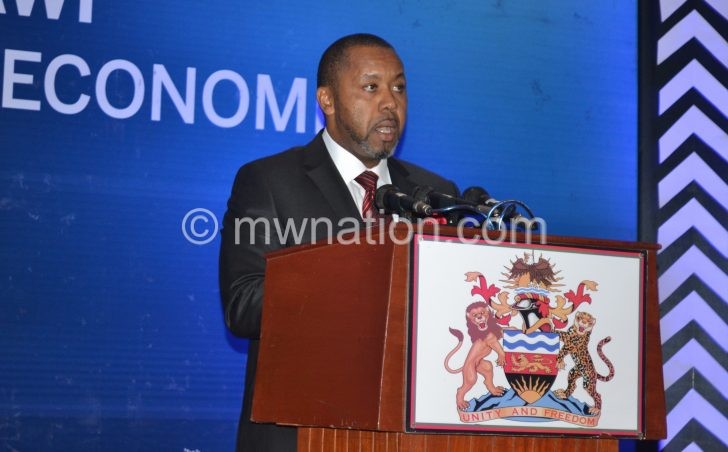Chilima challenges banks to promote young entrepreneurs
Vice-President Saulos Chilima has urged commercial banks to come up with products and services that can help young entrepreneurs access loans with ease so that they grow their businesses.
He was speaking in Lilongwe yesterday during the opening of Standard Bank and Unicef Socio Economic Forum.
According to Chilima, banks have a crucial role to play in promoting youth entrepreneurship since statistics show that Malawi is yet to fully benefit from the market access it has within the region and beyond.
“Market access means that proper financing and guidance of youth enterprises may not be a risk undertaking by banks.
“To ensure that banks benefit from youth entrepreneurship, [they] can also go an extra mile by establishing a proper monitoring system on credit administration and utilisation,” he said.
However, Chilima said success in youth entrepreneurship also depends on individual entrepreneurs through financial discipline.
“Malawi’s GDP [gross domestic product] and that of the USA put together is around $19 trillion. Through the African Growth Opportunity Act [Agoa], Malawi has access to the $18.5 trillion USA economy. Through the Everything But Arms (EBA) initiative, Malawi has duty-free and quota-free access to the $16.5 trillion European Union [EU] market.

“Through bilateral trade agreement, Malawi has access to $10.8 trillion China market,” added Chilima.
In his remarks, Standard Bank Malawi chief executive officer Andrew Mashanda said government must also play its part.
“The entrepreneurial potential in our youth needs to be unleashed. Sometimes as banks we are looked at as oligarchs, but you need to critically look at business concepts before you give out money,” he said.
Mashanda said resource endowment in and of itself is not sufficient hence the need to aim to build a highly skilled labour force that can take part in global value chains.
UN resident coordinator Mia Seppo said there is need for a paradigm shift focusing on less charity and building an effective and sustainable programme structure for youth that will create jobs, especially through entrepreneurship.
“Youth unemployment remains very high in Malawi. While unemployment for the highly educated youth has been lower relative to youth with other education levels, the situation is already becoming more problematic as increased numbers of graduates from universities enter the labour market with new skills and knowledge but slimmer employment opportunities,” she said.
According to a 2016 Malawi Youth Status Report, Malawi has a youthful population with more than two thirds under the age of 30.





